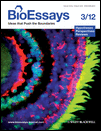导读:应激情况下,我们的脉搏加快、心脏泵血增多、肾上腺素释放等反应是最普遍的现象,但在紧张情况下,我们所作出的反应是由我们的基因控制的,并且在两性之间是有差异的。

澳大利亚的科学家在BioEssays上发表文章称SRY基因主要在男性身上调控行为,可能会推动攻击性行为和应对战斗或飞行等应激反应所产生其他传统的男性行为特征。
研究已经揭示身体在面对压力(应激情况)时如何激活肾上腺(负责将儿茶酚胺类激素分泌到血液中)的。然而,有关这个过程中的研究大部分都集中在男性,并没有考虑身体在面对压力(应激情况)时两性之间有什么不同的反应。
墨尔本亨利王子研究所的Joohyung Lee博士说:从历史上看,男性和女性两性处于不同的压力环境下,这反应在他们机体生化反应和行为上的差异。咄咄逼人的敌对的或侵略性的行为主要在男性身上体现,而女性主要采取不太积极的、友好的反应。
Lee博士和共同作者Vincent Harley教授提出Y染色体基因SRY基因是控制这种差异的遗传基础,即由SRY基因控制神经递质如儿茶酚胺的作用。Harley教授的早期研究表明,SRY基因是性别决定基因,能调控产前睾丸的发展,睾丸反过来分泌激素。
如果没有SRY基因,睾丸不会形成,胎儿便发展为一个女性。Harley教授说长期以来,人们认为SRY基因的功能是形成睾丸。然后,Eric Vilain教授率领加州大学洛杉矶分校的研究人员发现SRY蛋白在人类大脑中也存在,表明该蛋白质能通过控制多巴胺调节男性行为。
Lee博士说除了睾丸,SRY蛋白还存在于男性体内的其他重要器官包括心脏、肺和大脑,这表明它并不只在早期的性别决定中发挥作用。这表明SRY基因在除男性睾丸之外的组织中也发挥作用如调节心血管功能和神经系统的活动,而心血管功能和神经系统的活动在我们的应激反应中发挥重要作用。
作者提出,SRY基因可能主要在男性体内的主要器官中存在,以通过增加儿茶酚胺的释放和促进血夜流向器官,以及激发侵略性行为、激发战斗或飞行中男性行为。SRY基因儿茶酚胺的调控作用也表明该基因可能在男性多发的疾病如帕金森氏症有作用。
Lee得出结论:新的证据表明SRY基因主要针对于“男性”发挥作用,直接作用于大脑和外周组织去调控男性行为和血压。这项研究有助于揭示男性和女性会为什么会出现某些特定的行为表型和易患某些神经精神障碍的遗传基础。

 The male fight-flight response: A result of SRY regulation of catecholamines?
The male fight-flight response: A result of SRY regulation of catecholamines?
Joohyung Lee,Vincent R. Harley
When a person is under stress, the pulse quickens, the heart pounds and adrenalin courses through the veins, but in stressful situations is our reaction controlled by our genes, and does it differ between the genders?Australian scientists, writing in BioEssays, believe the SRY gene, which directs male development, may promote aggression and other traditionally male behavioral traits resulting in the fight-or-flight reaction to stress."Historically males and females have been under different selection pressures which are reflected by biochemical and behavioral differences between the sexes," said Joohyung Lee, from the Prince Henry's Institute in Melbourne, in a press release from Wiley, which publishes.BioEssays. "The aggressive fight-or-flight reaction is more dominant in men, while women predominantly adopt a less aggressive tend-and-befriend response."The authors propose that SRY may prime organs in the male body to respond to stress through increased release of catecholamine and blood flow to organs, as well as promoting aggression and increased movement which drive fight-or-flight in males. In females estrogen and the activation of internal opiates, which the body uses to control pain, may prevent aggressive responses.The role of SRY regulation of catecholamines also suggests the gene may have a role in male-biased disorders, such as Parkinson's disease.
文献链接:







